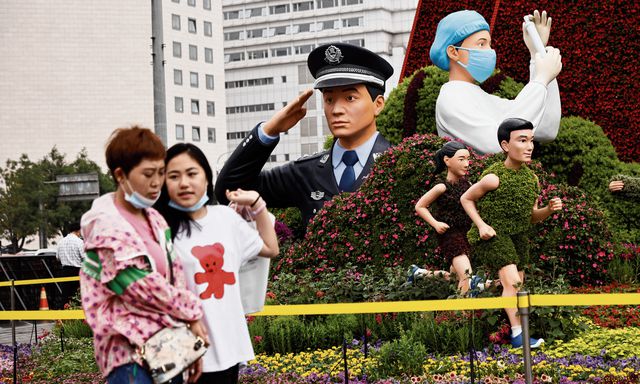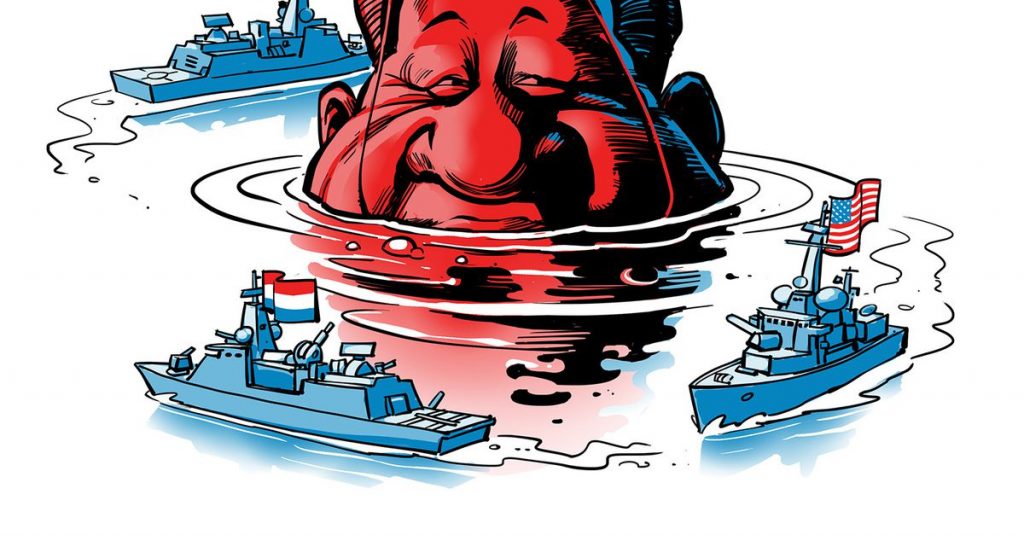The Communist Party of China celebrates its centenary on Thursday, July 1. With the centenary, the party is trying to legitimize its monopoly on power. After all, it has ruled China for many decades without allowing elections or political opposition. Exhibits, specials, and feature films for the population show how the party rescued the country from the chaos and poverty that had plagued China for so long.
The message is that the Communist Party has repeatedly proven itself as the savior of the country, and therefore the only one fit to continue to lead China into the future. Whoever leads China has a huge impact on the rest of the world. So a good understanding of what the Chinese Communist Party wants and is doing is essential for the Netherlands to determine how to respond to China.
hard line
The Dutch government adheres to the China Common Policy within the European Union, but recently sent a frigate to the South China Sea as part of a British-American fleet. This is not the correct response to China.
The United States offers a destroyer and dozens of F35 fighters sailing aboard the British ship, the aircraft carrier Queen Elizabeth. As far as China is concerned, the UK is increasingly on the same page with the US, which has a very large military presence at sea and with many allies in Asia.

Read also: Dutch frigate and British aircraft carrier will soon sail across the Indo-Pacific as ‘local officers’
It seems that the Netherlands wants to cooperate with China within the European Union and bilaterally with the British and the Americans. However, the American approach is particularly problematic. The United States is putting increasing economic and military pressure on China to change that country’s behavior to the detriment of US interests. A closer look at the Chinese Communist Party reveals the problem with that strategy.
“competitor system”
The party, founded in 1921 with the help of Dutchman Henk Snefleet, still calls itself the Communist, but nowadays it mainly promotes a nationalist ideology. With 92 million members, it is represented in all aspects of Chinese society. The party directly controls the Chinese military, determining who holds the top positions within the government and in large state-owned enterprises.
Due to the dominant role of the Communist Party of China, along with the strong international influence of China, the European Union considers this country a “competitor of the system” in the political-administrative sphere.
The military affiliation of the US strategy with China, whether jointly with the UK or not, is counterproductive
Indeed, it is difficult for the Netherlands to decide how to deal with China, especially in terms of economic relations and human rights. It is clear that mutual interests sometimes conflict directly, and therefore it is necessary for the Netherlands to approach China from a position of strength wherever possible. However, the current US strategy of China’s military affiliation, whether in conjunction with the UK or not, is counterproductive.
A key feature of CCP is its forward-looking approach. The party largely seeks to legitimize its autocratic rule in pursuit of the promise of a better China. According to the party, its mission is to lead China into a better future in which the country not only enjoys prosperity and international respect, but is also capable of facing external threats.
It is important for President Xi Jinping and his party colleagues to repeatedly show that this better future is approaching step by step, but also there is still a long way to go. As long as there are external threats, the Communist Party can claim that its leadership is indispensable to China and that internal divisions must be fought.
The CCP has repeatedly used confrontations with major powers in the past to make it stronger domestically. Now the current US pressure on China reinforces the party’s argument that its role is far from over.

Read also: Is the Chinese Communist Party ready for another 100 years?
Western hate
President Joe Biden’s attempts to isolate China internationally will only be partially effective, given China’s extensive economic relations with many countries. According to the International Monetary Fund, the largest contribution to global economic growth will come from China in the coming years, so developing countries in particular, as well as many companies, are partly dependent on China.
Meanwhile, the CPC’s stronger domestic position is increasing the West’s alienation from China’s political-economic system. The result of the interaction between domestic and international processes is an increasingly intense geopolitical rivalry, and an increased potential for armed conflict between the United States and China.
The centenary of the Chinese Communist Party is a good reason for the Netherlands to consider how it wants to position itself geopolitically. To prevent Chinese hegemony, cooperation with the United States is essential. However, this does not mean that America’s current policy towards China is the right approach.
Rather than contributing indirectly to this by participating in a British-American-Dutch naval squadron, it would be better for the Netherlands to negotiate with the United States in the context of the European Union on a joint China strategy that is less risky and overtly provocative, and aimed at greater goals. Reciprocity in economic relations with China.”


